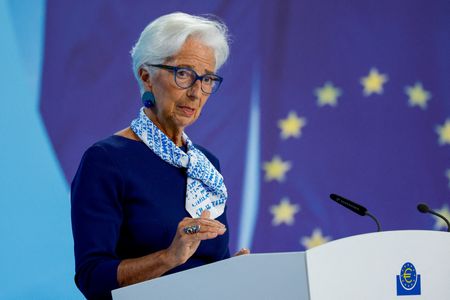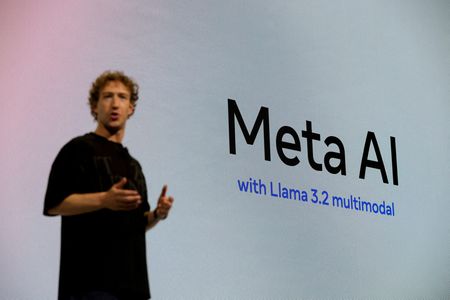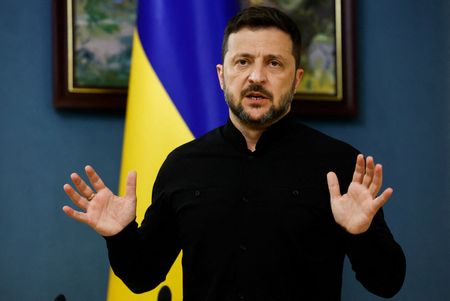(Corrects paragraph 6 to say further rate cuts not hikes)
By Balazs Koranyi and Francesco Canepa
FRANKFURT (Reuters) -The euro zone economy has remained resilient to the pervasive uncertainty caused by a global trade war, a slew of data showed on Friday, even as European Central Bank policymakers appeared to temper market bets on no more rate cuts.
The ECB kept interest rates unchanged on Thursday and its modestly upbeat assessment of the euro zone economy raised investors’ expectations that a year-long easing cycle, which halved the bank’s key rate to 2% from 4%, may be coming to a close.
Supporting some of this optimism, lending data showed the fastest pace of expansion in two years, while a key ECB survey predicted quicker economic growth along with inflation right on target.
A separate Ifo survey on Germany meanwhile showed the seventh consecutive rise, indicating that the bloc’s biggest economy is still motoring along despite trade tensions holding back exports and corporate investment.
The figures also back comments from ECB President Christine Lagarde that the bloc may have performed a “little better” than expected last quarter.
The fresh data, combined with Lagarde’s comments, led investors to keep reducing their bets on further rate cuts. Markets now see just a 50% chance of another move this year, a major retreat from earlier this week when another cut was fully priced in.
Still, policymakers appeared to take a more cautious view than financial investors.
“Risks to growth were still tilted to the downside, with uncertainty remaining very high,” French central bank chief François Villeroy de Galhau said. “More than ever, in a volatile environment, agile pragmatism in light of data and forecasts is of the essence.”
One key worry is that tepid growth, a strong euro and the hit from tariffs will all curb price pressures, raising the risk that inflation, now at the ECB’s 2% target, will fall too low, requiring stimulus from the central bank.
“U.S. tariffs, the extent of which is still uncertain, are not expected to cause inflation to rise, while the appreciation of the euro is having a significant disinflationary effect,” Villeroy said.
Finnish central bank chief Olli Rehn also appeared to caution against staying on the sidelines for too long.
“Taking more time for decision-making is now particularly useful – the option value of waiting is exceptionally high,” Rehn said in a blog post. “However, we should not wait in vain for general uncertainty to diminish much, at least not under the current U.S. administration.”
Nevertheless, several major banks revised their ECB forecasts.
Goldman Sachs, BNP Paribas, Nomura and Commerzbank have all scrapped their predictions for more policy easing, expecting no more rate cuts this year, while JPMorgan pushed back its call for one final rate cut to October from September.
However, several others, including Bank of America, Barclays and UniCredit, continued to predict a move in September, even if some of them acknowledged that the chances of a move have diminished somewhat.
(Reporting by Balazs Koranyi; Editing by Emelia Sithole-Matarise and Hugh Lawson)











